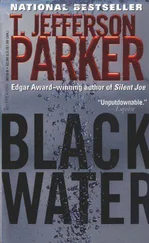Now you’ve seen my skin, Harper thought.
Gregor intervened. ‘I told him you got the Cadet Lion Honourable Mention in your year. And you scored ninety-eight per cent on our induction programme. There’s a few physicals but that won’t take long.’
‘Thank you, sir,’ Harper replied.
Later that day, Gregor said, ‘I also told him you spoke all the languages out there. You can get up to speed, can’t you, once you’re on the ground? It’s not going to take you that long to pass.’ He wondered if the Malay he had learned as a child might help with his Indonesian, whether it was buried there somewhere. He was quick at languages, he’d get conversational faster than most, but the sort of fluency Gregor was talking about took years — and Javanese was another thing altogether. Javanese was fiendish. Gregor’s optimism about Harper’s language skills was based on no more than his own colossal ignorance. He pulled a face to indicate it wasn’t that simple and Gregor said, ‘Oh c’mon, you half-castes have a real facility for languages, you’re gifted at it, you guys, you’ll be fluent within weeks, accent and everything.’
Harper felt the drip, drip, drip of all the remarks they made around the office, about how good his sun tan was, how much he must like spicy food. Such remarks were always phrased as compliments. He had been permanently resident in Holland since the age of twelve but people often remarked on the flawlessness of his Dutch.
*
His pain threshold was fairly high but he had a secret weakness: a great and pressing fear of any situation where breathing might be difficult. It wasn’t the same as claustrophobia: lifts and cars were fine. If the situation demanded it, he could have happily spent hours hiding in a wardrobe as long as there were holes in it — but suffocating, drowning, these were the fates he dreaded. It was the totality of them, he sometimes thought. Pain belonged to the location where the pain was situated — a broken arm was a broken arm, however agonising. Even a stomach ache or backache, those most internal of pains, could be ring-fenced from the rest of your body, your consciousness, if only you were strong enough: but being unable to breathe, for whatever reason, was a state that possessed the whole of you.
So when the hood came down over his head, he panicked, sucking in a great breath that pulled the rough fabric into his mouth. The two men holding either arm threw him to the ground and he landed on his back with a thump that made his head snap backwards and expelled what little breath there was left in his lungs out into the hood — he sucked in again, more violently this time. As he rolled to one side, he forced himself to do an inventory: whiplash, perhaps, some bruising to his back no doubt. No broken coccyx at least — he would have felt that immediately. He tucked his chin down and braced himself, expecting one or both of the men to kick him now he was on the floor: with his hands tied behind his back he couldn’t roll into a ball — his head was very vulnerable. But it wasn’t that that was worrying him most, it was his breathing. He had a moment to observe his own efficiency in noting this.
Instead of laying into him, the men left the room. At least, he thought they had left — there were the sounds of their feet scuffing on the dirt floor, the slam of the door.
He lay very still but his own breath was ragged against the cloth and too harsh for him to listen to the room. He was still hyperventilating and each time he did, he sucked the hood back into his mouth, shortening the breath and making him hyperventilate more. It came to him that if he did not control his breathing, then without the men doing anything more, the end would be suffocation. That was what happened. You shortened your own breath millilitre by millilitre, a bit like someone with a rope around their neck struggling so much they pulled the noose tight. Would they use the water trick? He had heard stories of people choking on their own vomit when they did that.
It would be really stupid to suffocate himself when they weren’t even trying to kill him. He lay trying to steady his lungs, interrogating the pain in his shoulders where his arms were pulled back. He found that if he rolled his shoulders back in tiny movements, like a minute version of a limbering-up exercise, it eased the pain.
He managed to slow his breathing a little, but only a little. Each time he inhaled, he still sucked the cloth into his mouth, like a tiny billowing sail, shortening the breath that followed. When he exhaled, he blew the cloth back out with more force than was wise, filling the interior of the hood with his own CO 2. I must stop this .
The door opened again, slammed back against the wall. The light in the room changed — he could tell through the hood. Sounds were muffled but he felt sure that several men had entered the room. A pair of hands scrabbled against his neck and the drawstring around the bottom of the hood. For a moment he thought, if they aren’t careful, they’ll asphyxiate me instead of getting me free. The string pulled against his windpipe, released, and the hood was yanked away. As his eyes adjusted he caught the blurred form of a figure in front of him and then another two against a wall, more distant, to one side, but before he had time to configure what he was seeing a hand grabbed a handful of his hair and shook his head from side to side and Joosten’s round face was in his and his voice was booming in his ears, ‘Wakey wakey Nic old man, you’ve passed!’
‘Fuck you, Joosten,’ Harper gasped, his breath still painfully laboured in his chest, ‘fuck you.’
The two trainers, leaning back against the wall of the cell with their arms folded, burst into appreciative laughter; Joosten clapped him on the shoulder; and for a moment or two, as the breath that heaved in his throat still felt as heavy as sand and his chest pressed painfully inwards, it occurred to Harper that when he got out in the field, it would not, after all, be one big game.
There was a pleasing symmetry to his arriving in Jakarta by ship. He had left on a long sea journey at the age of three from this very port, perhaps even this very jetty, and here he was, returning the same way, nearly two decades later. Last time he had stood on this spot he was an undersized boy, head shaved to keep the lice at bay. Now, he was a man. He had done his national service; he had — as Gregor had pointed out to Johnson — received the Cadet Lion Honourable Mention in his group; he was fit and trained.
He imagined his younger self, big-eyed and malnourished, a refugee child clinging to his mother’s skirts, looking up at his grown self in awe. I’m back , he thought, as he stood on the dock long after the other passengers had disembarked, waiting for the crate he was accompanying to be unloaded, looking around at the vast sheds and the gangs of shirtless men, a foreman yelling at them in a high-pitched voice. The jetty he was standing on was for deep-sea ships, the passenger liners, and his boat was the only arrival in port at present, but stretching far in the distance, to his right, was the long strip of docking bays for the smaller freight boats, old wooden things, hardly seaworthy they looked, with peeling paintwork on their high bows. These were the boats that would sail to and from Sumatra, Borneo, the smaller islands perhaps, carrying everything from cement powder to coconut husks for animal feed, coffee, spices. He could get on one of those freight vessels and be almost anywhere, nowhere as far as anyone else was concerned. What a fine thought. The further you travelled, the more you faded from view, until nobody knew where you were or if you even existed. Were it not for the seriousness of his mission, he would be tempted to stroll down to one of those boats now, deserting his crate and his tin trunk full of research, shedding everything Dutch or American about himself, bribe the captain with cash, stow away — and disappear.
Читать дальше












